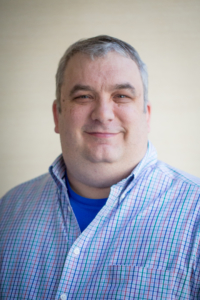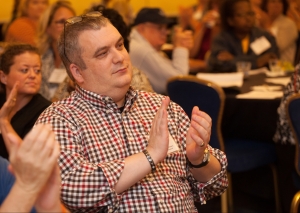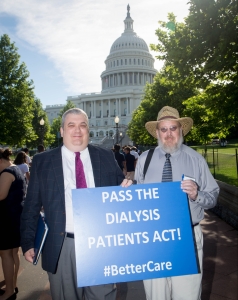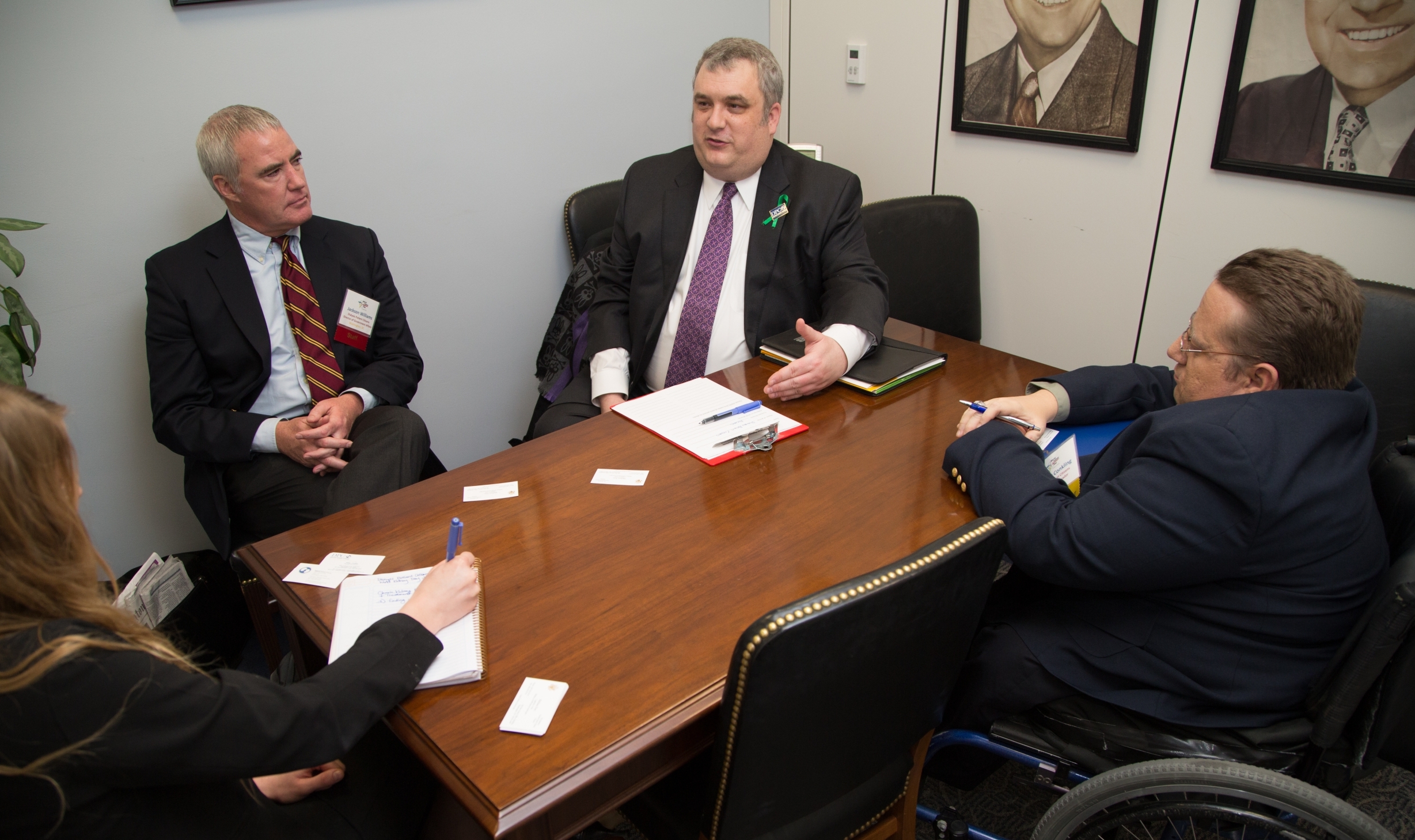
Mike Guffey
When Mike Guffey began dialysis treatments in 2008, one of his top priorities was to ensure he had a reason to keep moving forward, something to look forward to when he got out of bed which would allow him to push through his treatment regimen.
For him, that meant returning to work as quickly as he could after starting his treatments, especially given how quickly he crashed into life on dialysis.
Normally based in Kansas City, Mike was working temporarily as a project manager in Colorado when he noticed something was off. He went to the doctors thinking he had altitude sickness, and the doctors told him it was likely either that or the flu. They prescribed antibiotics to help the sickness, but he only started feeling worse.
Shortly after, he went to visit his parents in Arizona but had trouble getting on and off the plane by himself. His parents told him to go to a nearby clinic, where he was told he had to go to the emergency room immediately.
When he got to the E.R., they told him he shouldn’t even be standing up in his condition, let alone driving. He was admitted to the hospital immediately, and the care he received over the next 24 hours was critical in keeping him alive.
Before he knew it, he was diagnosed with renal failure and admitted to the intensive care unit. He had no family history of kidney disease, no comorbidities to speak of; he was just dropped into life with kidney disease. He had to reorient his life, figuring out ways to work dialysis treatments into his weekly routine.
After about three weeks, he was able to return to the job he had been working in for 20 years and resume his previous schedule. Now back in Kansas City, he went into work full-time, coming in slightly earlier on the three days each week that he had to leave for the dialysis clinic at 4:30. Having four-and-a-half hour treatments after work wasn’t easy – he was often one of the last few people there at night – but he was able to manage his recovery time and continue working in a job he loved.
schedule. Now back in Kansas City, he went into work full-time, coming in slightly earlier on the three days each week that he had to leave for the dialysis clinic at 4:30. Having four-and-a-half hour treatments after work wasn’t easy – he was often one of the last few people there at night – but he was able to manage his recovery time and continue working in a job he loved.
His treatments weren’t enough to keep him from doing his best to help everyone he could, either. When a tornado struck Joplin, Missouri in 2011, it was important to Mike to find some way to help. While his doctor would under no circumstance let him travel to Joplin to help with the recovery, he was able to provide support remotely and contribute to a devastated community looking to pick up the pieces.
He also was able to keep up with his personal life. While treatments meant he did have to scale back on meeting friends for dinner or a movie, Mike could still travel to see his parents and attend the occasional concert.
Mike also found time to help advocate for other kidney patients. When he was at a dialysis clinic in Arizona, Mike heard about Dialysis Patient Citizens. Before long, he got involved and participated in a fly-in to Washington, D.C., where he met with policymakers on Capitol Hill and within the U.S. Department of Health and Human Services. He later became DPC’s secretary and, eventually, treasurer.
He wasn’t alone, however. Mike benefited from an immense support group at work. A number of his coworkers – some of whom were also suffering from chronic conditions of their own – were like on-site nurses in the office. They helped keep him on track with his treatments.
Most importantly, though, they guaranteed he kept his head up no matter how difficult a day he was having. They had seen too many peers on disability who grew miserable over time, and their support network helped make sure everyone stayed positive.
This support continued through Mike’s trying process of receiving a kidney transplant.
Like many other hopeful transplant recipients, Mike had a suitcase ready to go to the hospital as soon as he got the call that a kidney was ready. When that call came, he made the drive from Kansas City to St. Louis with his mother and called his family to push back their Christmas plans. But when he got to the hospital, he found out he would not be able to receive the transplant.
A short time after, another call came. A new kidney was ready, and Mike was the fourth in line to receive it. Before long, he was at the top of the list and had received his transplant. When he called his boss to tell her he had finally received a transplant and would be out of the office, she said his voice was already stronger and more animated than it had been before. Now, Mike is back at work and continues advocating for other patients through his involvement with DPC.
 So, after everything he’s been through, what advice would Mike give to patients who suddenly find themselves on dialysis like he did?
So, after everything he’s been through, what advice would Mike give to patients who suddenly find themselves on dialysis like he did?
“Don’t give up and think that everything is over.”
His primary piece of advice is to do exactly what he did: find something to not only keep yourself busy, but keep yourself positive. Search out a support network, inform yourself about the care options that are open to you, and take control of managing your care. If you do this, you will still be able to lead the life you want to on dialysis.
Like thousands of other dialysis patients, finding a way to do that took some time for Mike. Eventually, though, he found a routine that worked for him, allowed time to work a fulfilling job, and live life on his terms.
The same can be true for you, and the team at DPC is eager to help. If you want to speak with any of our advocates, or learn how to become one yourself, feel free to get in touch with us at www.dialysispatients.org or by calling (866) 877-4242. We can’t wait to meet you!




